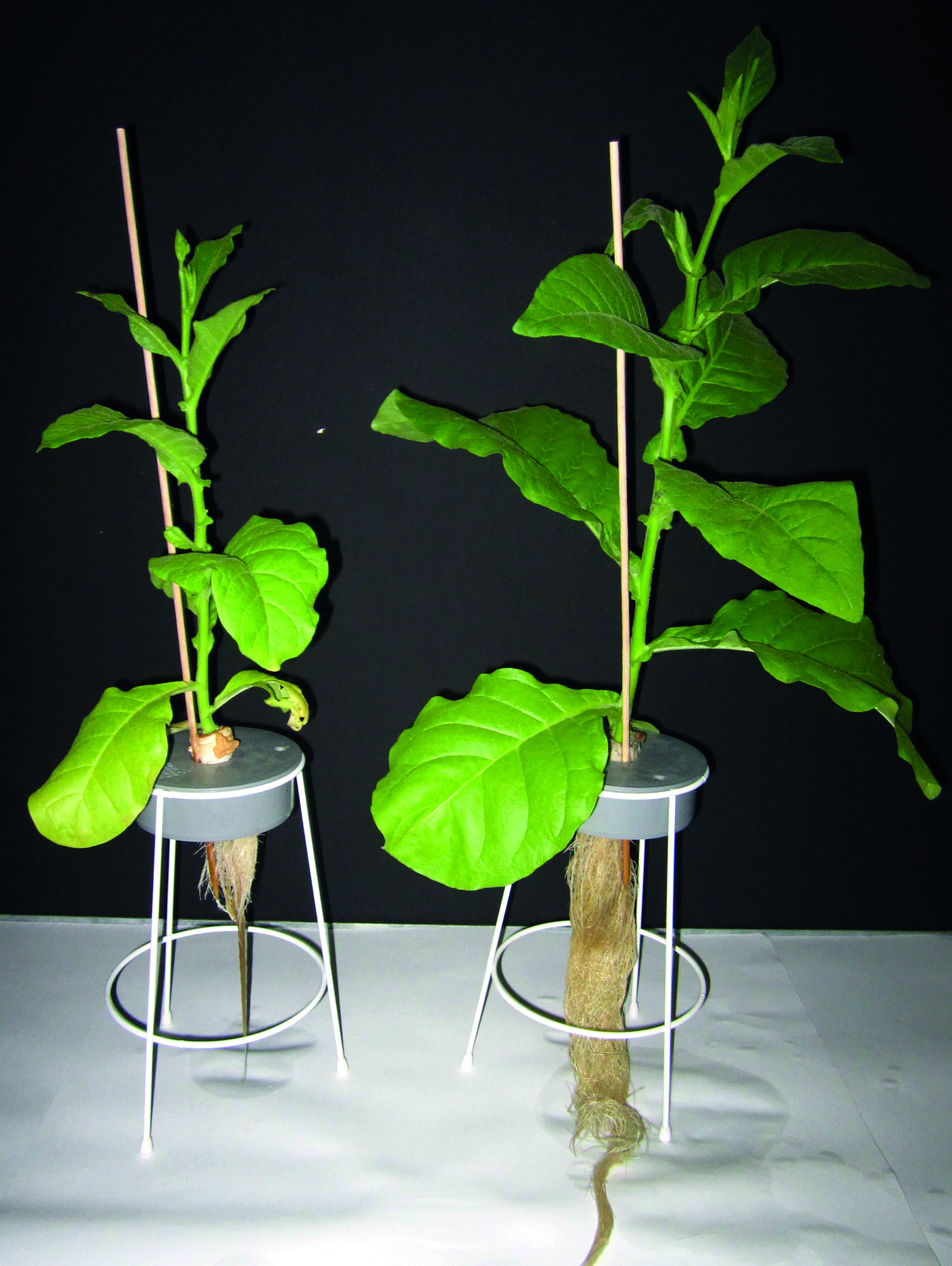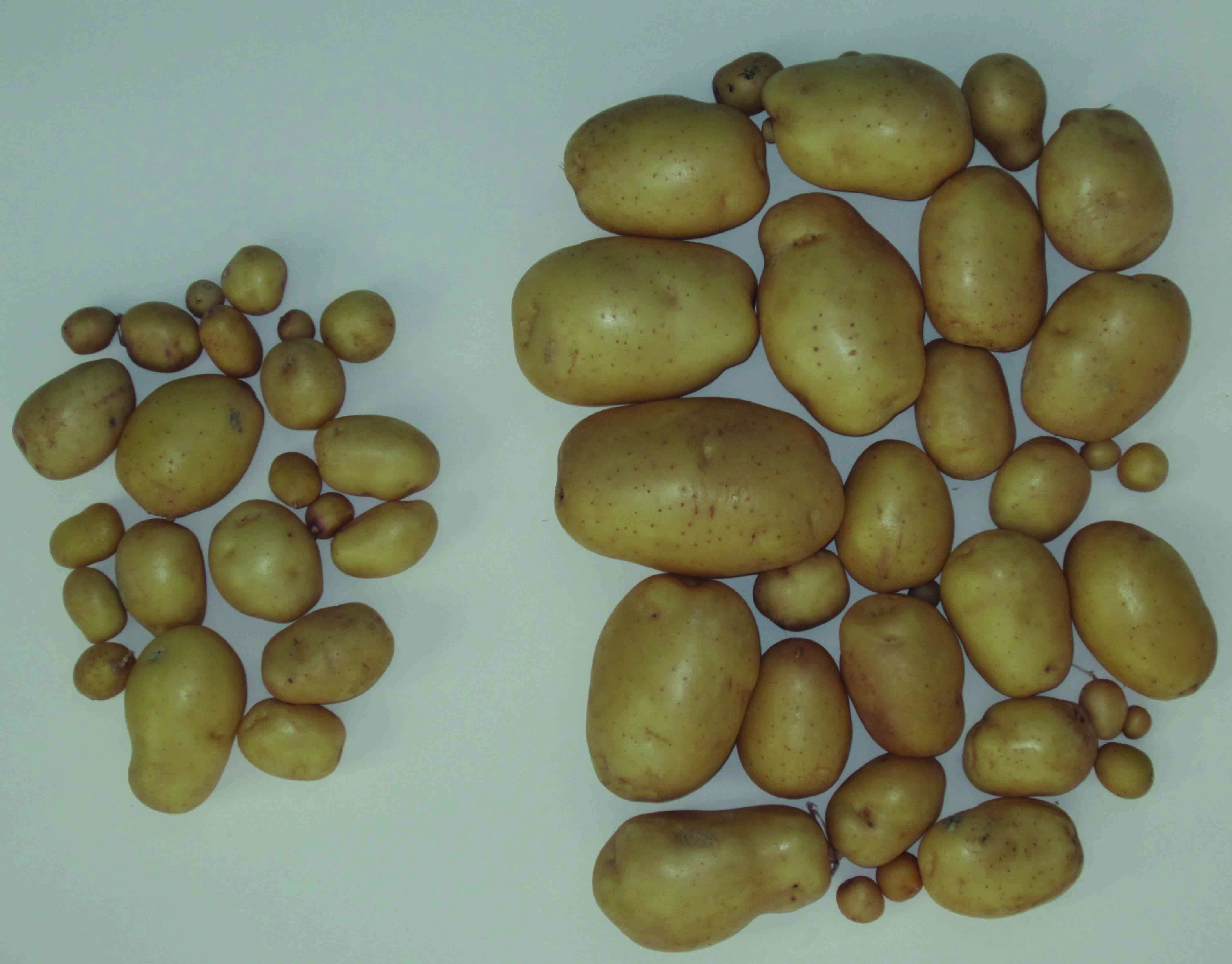Approach
Glycolate dehydrogenase (GlcDH), the first enzyme in the bacterial glycolate catabolic pathway, is a multiprotein complex comprising three subunits (D, E and F). GlcDH activity is affected by the unbalanced expression of these subunits. To avoid the need for multigene transformation and to ensure balanced expression of the three subunits, we designed a recombinant glycolate dehydrogenase polyprotein (DEFp). The engineered polyprotein retained the functionality of the native GlcDH complex when expressed in the bacterium Escherichia coli.
The DEFp construct was introduced into tobacco and potato chloroplasts.
- Recombinant DEFp was active in planta, improving the uptake of carbon dioxide and reducing photorespiration.
- Transgenic tobacco plants produced more biomass, especially under limited nitrogen availability (Figure 1).
- Transgenic potato produced higher carbohydrate levels in leaves, increasing the tuber yield by 2.3-fold (Figure 2).
Conclusion
The expression of recombinant DEFp in tobacco and potato plastids has a significant impact on carbon metabolism, improving biomass accumulation and nutrient-use efficiency under nitrogen starvation conditions.
This novel approach has the potential to increase the biomass and yield of diverse crops.
 Fraunhofer Institute for Molecular Biology and Applied Ecology IME
Fraunhofer Institute for Molecular Biology and Applied Ecology IME
